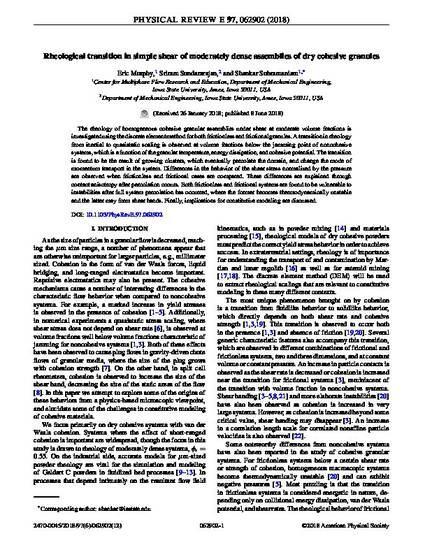
The rheology of homogeneous cohesive granular assemblies under shear at moderate volume fractions is investigated using the discrete element method for both frictionless and frictional granules. A transition in rheology from inertial to quasistatic scaling is observed at volume fractions below the jamming point of noncohesive systems, which is a function of the granular temperature, energy dissipation, and cohesive potential. The transition is found to be the result of growing clusters, which eventually percolate the domain, and change the mode of momentum transport in the system. Differences in the behavior of the shear stress normalized by the pressure are observed when frictionless and frictional cases are compared. These differences are explained through contact anisotropy after percolation occurs. Both frictionless and frictional systems are found to be vulnerable to instabilities after full system percolation has occurred, where the former becomes thermodynamically unstable and the latter may form shear bands. Finally, implications for constitutive modeling are discussed.
Available at: http://works.bepress.com/shankar_subramaniam/24/

This article is published as Murphy, Eric, Sriram Sundararajan, and Shankar Subramaniam. "Rheological transition in simple shear of moderately dense assemblies of dry cohesive granules." Physical Review E 97, no. 6 (2018): 062902. DOI: 10.1103/PhysRevE.97.062902. Posted with permission.